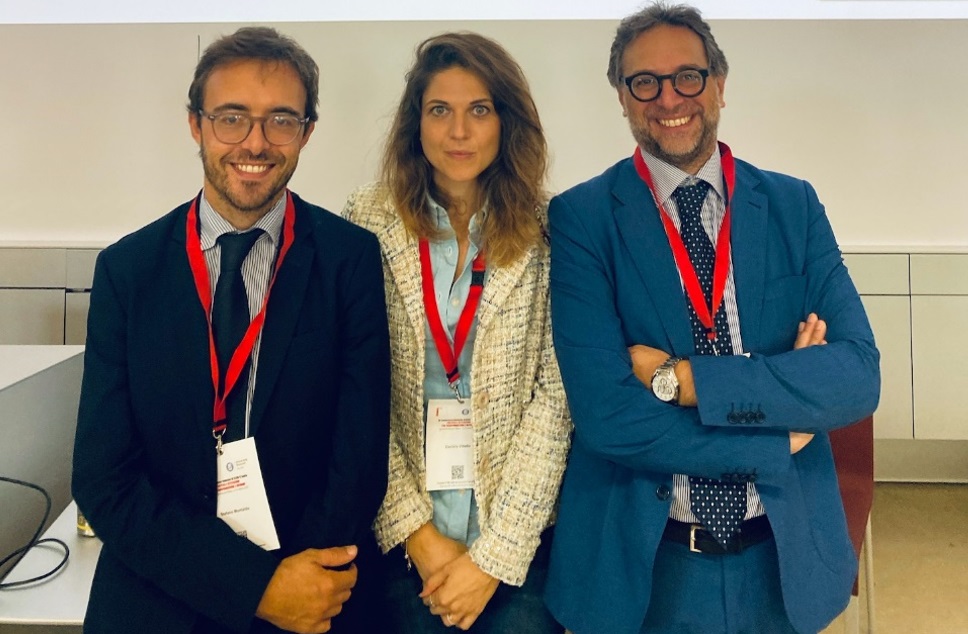Consortium
The University of Tuscia (UNITUS), the lead institution, the University of Bologna (UNIBO) and the University of Turin (UNITO) form the scientific consortium of the CoSME project.
- The UNIBO unit is in charge of carrying out research, analysis and policy design aimed at expanding tertiary education pathways for refugees in Europe: the added value of an EU reference framework;
- The UNITO unit is in charge of carrying out research, analysis and policy design aimed at strengthening regions and cities across Europe: the EU as a norm entrepreneur for community sponsorship;
- The UNITUS unit is in charge of carrying out research, analysis and policy design aimed at developing community sponsorship for the humanitarian admission of large flows as a contribution to an EU model of community sponsorship.

The first phase of the project focuses on the mapping and comparison of community sponsorship systems in selected EU Member States and third countries:
- The UNIBO unit will use case studies to explore the role of universities and local communities as sponsors and their contribution to refugee agency and integration in Italy. The analysis will be based on quantitative/qualitative methods, taking stock of the good practices and shortcomings of the University Corridors implemented in Italian universities.
- The UNITO unit focuses on the practices of cities and regions involved in the EU Partnership on Integration. The analysis is based on an in-depth qualitative survey of local/regional policies on integration, inclusion and access to the welfare state, complemented by a fieldwork assessment of the policy and operational characteristics of local approaches to sponsorship for humanitarian admission and integration.
- The UNITUS unit will explore the application of community sponsorship to mass displacement, starting from the lessons learned from the war in Ukraine. The case study will be based on a multi-stakeholder analysis of patterns of solidarity and policy options developed at national and EU level to enable common standards of fairness in responsibility-sharing.
The second phase of the project focuses on the implications for policy transfer and the role of the European Union:
- The UNIBO unit is in charge of conducting research on policy transfer to proximate jurisdictions for the expansion of educational pathways in the EU through a comparative multi-stakeholder analysis.
- The UNITO unit is in charge of conducting research on intra-EU transfers of community sponsorship to proximate social systems and the role of EU incentives and funding.
- The UNITUS unit is in charge of conducting research on sponsorship of large flows, analysing the implications for intra-EU solidarity and responsibility-sharing in the area of asylum.
The third phase of the project will focus on policy setting for a European model of community sponsorship:
- The UNIBO unit will define the EU’s role in knowledge sharing and global advocacy for community sponsorship, to be assessed in coordination with GRSI.
- The UNITO unit will provide an EU reference framework on community sponsorship as a blueprint for EU external action on migration and asylum, policy dissemination and capacity building in neighbouring countries.
- The UNITUS unit will explore the contribution of an EU principled definition of community sponsorship to international standard-setting, with a view to determining what role it could play in the implementation of the Global Compacts.
Network & Related Projects
- ARA (Active Refugee Admission Policies in EuropeWorking Group)
- CAPS-EU (Building Capacity for Private Sponsorship in the European Union)
- CMR (Centre of Migration Research at Warsaw University)
- Consorzio Communitas
- EasyRights (Mediation Grammar)
- European Union Asylum Agency (EUAA Working group on community sponsorship)
- GRSI (Global Refugee Sponsorship Initiative)
- IntoME (Jean Monnet Centre for the Integration of Migrants in Europe)
- NASC (Migrant and Refugee Rights)
- Pathways International
- RUNOMI (Radboud University Network on Migrant Inclusion)
- S.O.S. MEDITERRANEE Italia
- SHARE Network (Complementary Pathways: EU-Passworld)
- Talent Beyond Boundaries
- Tavolo metropolitano per la convivenza di Roma Capitale
- UNHCR Joint Data Center on Forced Displacement
- UNICORE (UNHCR University Corridors)
- UNIMED (Mediterranean University Union)
- UNIRE (Unione Nazionale Italiana per i Rifugiati ed Esuli)


